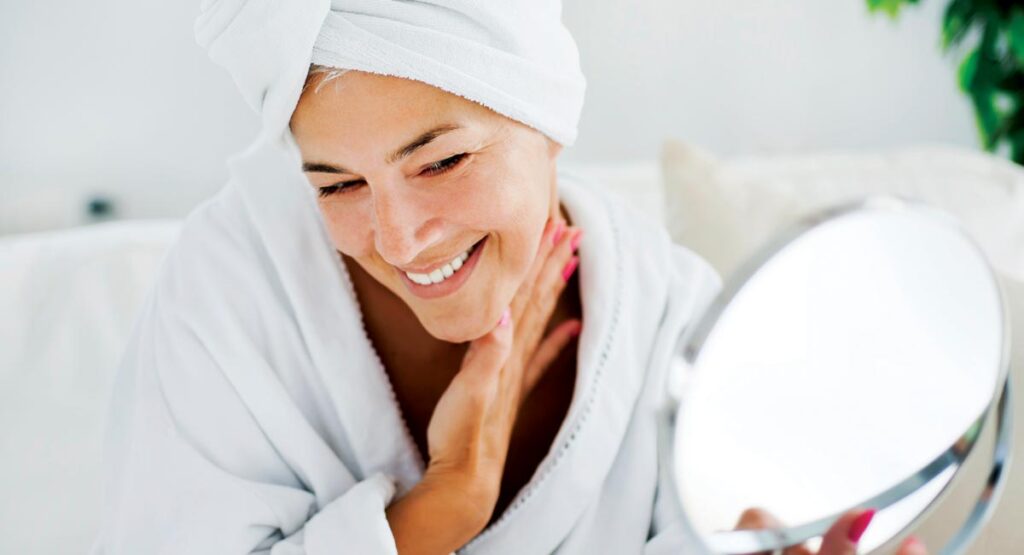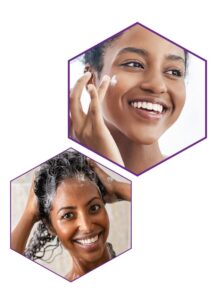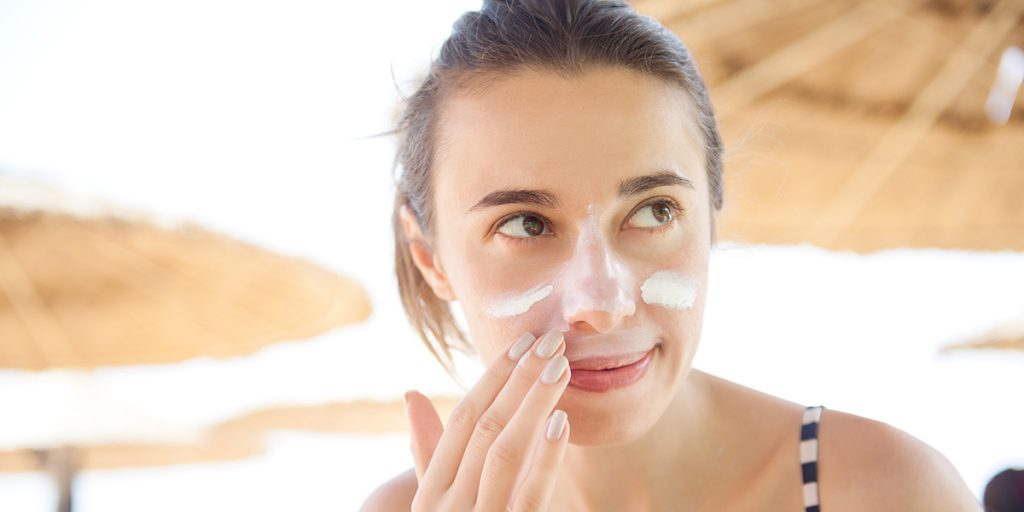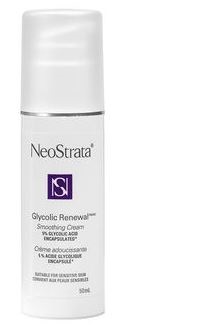It’s a beautiful day outside, and the sun is shining down on you, warming your skin to the perfect temperature. Like the plants and animals around us, we need the sun to survive—but exposure to the sun has a dark side, too. Extended exposure to sunlight, especially during childhood, can cause significant skin damage.
Sunlight travels through the air as ultraviolet radiation (UV rays). There are several different types of UV rays. UVA rays play a role in causing skin damage such as wrinkling and premature aging of the skin, and they have also been associated with causing skin cancer. UVB rays are mostly to blame for sunburn and are closely linked with the development of skin cancer. Fortunately, there are steps you can take to protect yourself from skin damage and still enjoy the sun. Here are some tips that can help.
• Limit the amount of time you spend outdoors when the sun’s rays are most intense—usually between 10 a.m. and 4 p.m.
• Look for shade. A good guideline to use is that if your shadow is shorter than you are, move into the shade. Babies under six months of age should always be in the shade and their skin should be covered.
• Wear protective clothing and sunglasses. A long-sleeve shirt, long pants, and a hat will help protect your skin from the sun’s rays. Choose sunglasses that provide 99% to 100% UV absorption to protect your eyes.
• Always wear sunscreen on any exposed skin when you go outdoors—all year round, every day, even when it’s cloudy. Choose a broad-spectrum sunscreen that provides protection against both UVA and UVB rays, and make sure it has a sun protection factor (SPF) of 30 or higher. Apply 30 mL (1 oz.) of sunscreen—about enough to fill a shot glass—to your whole body 15 to 30 minutes before going outdoors. Reapply more sunscreen to your body every two hours, or every hour if you are swimming or sweating. If you need help selecting a sunscreen, your London Drugs pharmacy team will be happy to help you.
• Use a lip balm or lipstick that contains a sunscreen with SPF 30 or higher
• Be especially careful around water and sand, because these surfaces can reflect the sun’s rays, increasing your chances of getting a sunburn.
• Be aware of medication side effects. Some medicines can make you more sensitive to the sun. Your London Drugs pharmacists can let you know if any of the medicines you take could have this effect.
Your summer skin care routine
Your daily skin care routine needs to be adjusted as the seasons change. As the temperature rises and the humidity increases, our skin begins to produce more oil for protection, but the oil can get stuck on the skin surface, clogging pores and making skin feel greasy. Blocked pores can lead to acne breakouts, the most common skin problem that occurs in summer. Wash your face with a deep cleansing facial wash suited to your skin type.
If you choose to exfoliate your skin, do it gently. Choose a method and product made for your skin type. If not done properly, exfoliation can cause more harm than good, leading to skin damage or acne breakouts. Always follow exfoliation with a moisturizer. If you are not sure if exfoliation is right for you, speak to your pharmacist, family doctor, or dermatologist first.
Keeping your skin hydrated is key all summer long. Drinking about eight 250 mL (8 oz.) glasses of water daily will also help maintain the moisture balance of your body and your skin. You may require more or less water depending on your activities for the day, your general health, and how much caffeine you consume.
Use a moisturizer to protect your skin and choose one based on your skin type. Look for creams and lotions that are unscented, non-comedogenic (won’t clog pores), and consider those with sunscreen if it will be used on exposed skin. For best absorption, apply the moisturizer immediately after you bathe.
Remember your eyes and lips. Sunglasses with larger lenses can help protect the delicate skin around your eyes from the sun’s harmful rays. If your lipstick does not provide SPF protection, apply a lip balm with SPF protection under your lipstick.
Gently scrub your feet to exfoliate and apply moisturizer and sunscreen to them daily, especially if you wear sandals or open-toed shoes.
Don’t sweat it!
Summer sun brings summer sweat and the odour that comes with it. Fortunately, there are some steps you can take to minimize or eliminate excessive sweating.
• Look for clothes made from breathable fabrics to help you stay cool.
• Limit or avoid eating spicy foods, because they raise overall body temperature, and the body’s response is to create sweat to help us cool down.
• Stay hydrated. Drinking cold water will help your body stay cool and reduce sweating.
• Deodorants to help control or mask odours and antiperspirants to control sweating or wetness are especially desirable in warmer weather. Look for a product that has a gentle formula and feels good on your skin.
If you need any assistance choosing summer skin care products, our pharmacists and beauty advisors are always here to help you.














